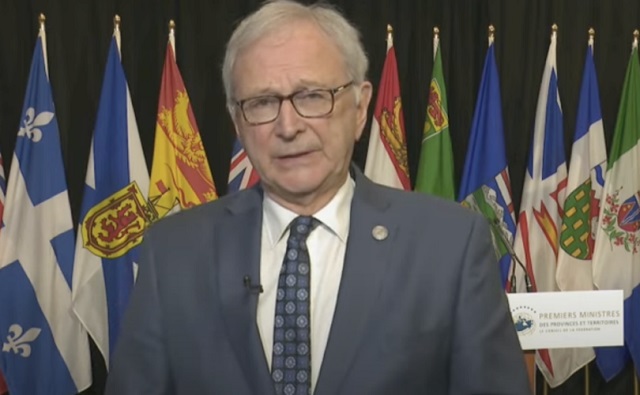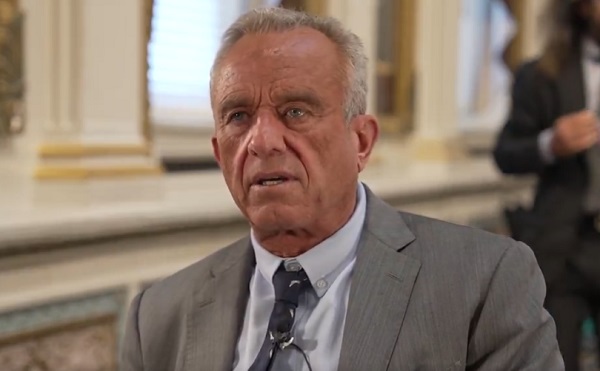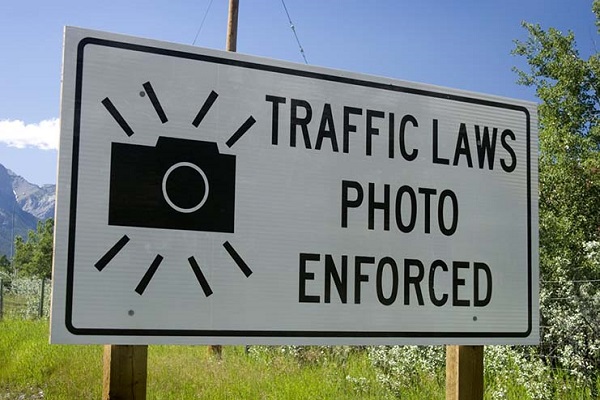Opinion
New Brunswick premier bans ‘sex-ed’ group from schools after presentation on porn, immoral sex acts

New Brunswick Premier Blaine Higgs
From LifeSiteNews
Sharing slides of a presentation given by a third-party group to New Brunswick school children that contained questions about pornography, masturbation and ‘anal’ sex, Premier Blaine Higgs said he is ‘furious’ and that the group has been banned, ‘effective immediately.’
Once again, New Brunswick Premier Blaine Higgs is showing Canadian politicians how to effectively advocate for common sense socially conservative policies. On May 24, he tweeted out a photograph of a slide from a sex education presentation given in a New Brunswick school. The slide featured red lips closing on a lollipop, the title “Thirsty For The Talk,” and the questions: “Is it normal to watch porn like people watch TV series?”; “Do girls masturbate?” and: “Is it good or bad to do anal?”
Premier Higgs posted his response:
A number of concerned parents have shared with me photos and screenshots of clearly inappropriate material that was presented recently in at least four New Brunswick high schools.
To say I am furious would be a gross understatement.
This presentation was not part of the New Brunswick curriculum and the content was not flagged for parents in advance. My office has been told by Department of Education officials that this was supposed to be a presentation on HPV.
However, the group shared materials well beyond the scope of an HPV presentation. The fact that this was shared shows either improper vetting was done, the group misrepresented the content they would share … or both.
This group will not be allowed to present again at New Brunswick schools, effective immediately.
Our government will have further discussions about whether additional rules about third-party presentations need to be updated.
Children should be protected, and parents should be respected.
I want parents to know that we are with you. We will continue to make decisions based on the principle that parents need to be aware of what is happening at schools, so they can make informed parenting decisions.
Do you think we need stronger rules about third-party presentations in our schools? I want to hear directly from you. Take our survey by clicking here:
Presentations like this – and indeed, presentations containing far more graphic material – are common in Canadian public schools. Plenty of schools actually feature in-house content that is substantially worse than this. But every time a debate about explicit, how-to sexual content in schools erupts, progressive activists and politicians dodge the issue by retreating to vagueness. Instead of defending the idea of an activist group like Planned Parenthood coming in to talk to students about why anal sex is just fine, they insist that this content is essential for “inclusion” and “tolerance” while scrupulously avoiding the specifics. Inevitably, most of the press coverage of the debate fails to include the specifics of what actually upset parents in the first place, and instead presents objectors as opposed to common sense progressive educational policies.
When the explicit content in question is described, however, progressives are denied the opportunity to defend their policy of encouraging and introducing fringe sex acts to children in vague, friendly, liberal-sounding buzzwords. Last year, for example, Planned Parenthood got caught handing out graphic “ABC” sex cards to students as young as 14 that explained, for example, how they could engage in “yellow and brown showers” (urinating and defecating on their partners). Plenty of other dangerous and immoral sex acts are encouraged, with Planned Parenthood’s presentation stating that each sexual urge must be “affirmed” – the amorality, in short, was up front.
But when the sex cards were covered in a handful of press outlets, parents were outraged the Saskatchewan government got involved. Planned Parenthood is now banned from presenting in Saskatchewan schools (although it was never explained why they were invited to do so in the first place). Planned Parenthood was reportedly confused by this decision, as they didn’t see the problem with the content they had distributed – but the only reason they were denied access to Canadian kids is because the graphic sexual information they were distributing was exposed publicly.
Premier Blaine Higgs appears to have realized that to implement common sense policies, exposing what is actually being taught in public schools is the only way forward. Progressives cannot be allowed to hide behind buzzwords like “toleration” and “inclusion.” Politicians and activists – including the prime minister – who wish to defend this content should be made to defend specifics, and the only way to force them to do that is to show the public what the kids are being taught in schools.
Business
Labor Department cancels “America Last” spending spree spanning five continents

 MxM News
MxM News
Quick Hit:
The U.S. Department of Labor has scrapped nearly $600 million in foreign aid grants, including $10 million aimed at promoting “gender equity in the Mexican workplace.”
Key Details:
-
Labor Secretary Lori Chavez-DeRemer and Deputy Secretary Keith Sonderling were credited with delivering $237 million in savings through the latest round of canceled programs.
-
Among the defunded initiatives: $12.2 million for “worker empowerment” efforts in South America, $6.25 million to improve labor rights in Central American agriculture, and $5 million to promote women’s workplace participation in West Africa.
-
The Department of Government Efficiency described the cuts as necessary to realign U.S. labor policy with national interests and applauded the elimination of all 69 international grants managed by the Bureau of International Labor Affairs.
Diving Deeper:
The U.S. Department of Labor on Wednesday canceled $577 million in foreign aid grants, including a controversial $10 million program aimed at promoting “gender equity in the Mexican workplace,” according to documents obtained by The Washington Post. The sweeping decision to terminate all 69 active international labor grants comes as part of a larger restructuring effort led by John Clark, a senior DOL official appointed during the Trump administration.
Clark directed the department’s Bureau of International Labor Affairs (ILAB) to shut down its entire grant portfolio, citing a “lack of alignment with agency priorities and national interest.” The memo explaining the cancellations was first reported by The Washington Post and highlights a broader shift in federal labor policy toward domestic-focused initiatives.
Among the eliminated grants were high-dollar projects that had drawn criticism from watchdog groups for years. These included $12.2 million designated for “worker empowerment in South America,” $6.25 million targeting labor conditions in Honduras, Guatemala, and El Salvador, and $5 million to elevate women’s workplace participation in West Africa. Other defunded programs involved $4.3 million to support foreign migrant workers in Malaysia, $3 million to improve social protections for internal migrants in Bangladesh, and $3 million to promote “safe and inclusive work environments” in Lesotho.
The Department of Government Efficiency, also involved in the review, labeled the grants as “America Last” initiatives, and pointed to the lack of measurable outcomes and limited benefits to American workers. The agency commended the leadership of Labor Secretary Lori Chavez-DeRemer and Deputy Secretary Keith Sonderling for securing $237 million in savings during this round alone.
The cuts mark the second major cost-saving move under Chavez-DeRemer’s leadership in as many weeks. Just days earlier, she canceled an additional $33 million in funding, including a $1.5 million grant focused on increasing transparency in Uzbekistan’s cotton sector. Chavez-DeRemer, a former Republican congresswoman from Oregon, was confirmed as Labor Secretary on March 11th by a bipartisan Senate vote of 67-32.
Health
RFK Jr. says ‘everything is going to change’ with CDC vaccine policy in Michael Knowles interview

From LifeSiteNews
New Health and Human Services Director Robert F. Kennedy Jr. said the CDC’s own reporting system ‘captures fewer than 1% of vaccine injuries. It’s worthless, and everybody agrees it’s worthless.’
When Michael Knowles asked new Health and Human Services (HHS) Secretary Robert F. Kennedy Jr. if anything will change regarding the public’s justifiable concern with the growth of vaccines, Kennedy quickly shot back, “Everything is going to change.”
Kennedy pointed to the Centers for Disease Control’s current flawed VAERS (Vaccine Adverse Event Reporting System) online mechanism.
By way of example, he said, “None of the vaccines that are given during the first six months of life have ever been tested for autism. The only one was the DTP vaccine. And that one study that was done, according to the Institute of Medicine, the National Academy of Sciences, found that there was a link.”
But “They threw out that study because it was based upon CDC’s surveillance system, VAERS, and they said that system is no good.”
“That begs the question, why doesn’t CDC have a functional surveillance system?” he asked. “We’re gonna make sure they do.”
“They don’t do pre-licensing safety testing for vaccines” he continued. “They’re the only product that’s exempt. So what they say is, if there are injuries, we’ll capture them afterward.”
However, “they have a system that doesn’t capture them. In fact, CDC’s own study of its own system said it captures fewer than 1% of vaccine injuries,” Kennedy said. “It’s worthless, and everybody agrees it’s worthless.”
“Why have we gone for 39 years and nobody’s fixed it?” he wondered, promising, “We’re gonna fix it.”
“We have DOGE (which) knows how to manage data. We’re going to be able to get into these databases and give answers to the American public,” Kennedy predicted.
“We’re going to have gold standard science, we’re going to follow the science, we’re going to publish all of our datasets, which CDC has never done,” he said.
“We’re going to do replication of all of our studies, which CDC has never done. We’re going to publish our peer review, which CDC has never done,” Kennedy vowed. “So people are going to have real answers for the first time.”
The new HHS head also discussed more broadly his mission after taking over the department’s helm, the mess created by the Biden administration, his job’s challenges, and recent developments thanks to DOGE.
“HHS is a $1.9 trillion agency. It’s the biggest agency in the government. And during the Biden administration, President Biden increased its budget by 38% and increased the workforce by 17%.”
“And by every metric by which we measure public health, health accelerated its decline.”
“When I came to HHS, what I found was a sprawling bureaucracy,” with functional duplication of departments, rampant redundancy and overstaffing, with various sub-agencies often acting in a territorial, self-protecting manner rather than a synergistic one.
“Perverse incentives” sometimes drive employee’s work,” he noted.
Despite his short tenure at HHS, with the help of DOGE, Kennedy has already released 20,000 “bureaucrats” from the department’s ranks.
“We’re going from 82,000 personnel to 62,000,” said Kennedy, carefully pointing out, “We’re keeping the scientists and frontline providers.”
Kennedy said that it has been really hard to fight against the problems at HHS and NIH over the last 40 years from “the outside.”
But “now I’m on the inside,” he declared. “This is the purpose of my life. It’s what I’m going to do over the next four years.”
He concluded:
President Trump promised to return the American dream to Americans.
A healthy person has a thousand dreams. A sick person only has one.
-

 Business1 day ago
Business1 day agoFeds Spent Roughly $1 Billion To Conduct Survey That Could’ve Been Done For $10,000, Musk Says
-

 2025 Federal Election2 days ago
2025 Federal Election2 days agoChinese Gangs Dominate Canada: Why Will Voters Give Liberals Another Term?
-

 Alberta17 hours ago
Alberta17 hours agoPhoto radar to be restricted to School, Playground, and Construction Zones as Alberta ends photo radar era
-

 Health19 hours ago
Health19 hours agoRFK Jr. Drops Stunning Vaccine Announcement
-

 Alberta11 hours ago
Alberta11 hours agoProvince announces plans for nine new ‘urgent care centres’ – redirecting 200,000 hospital visits
-

 Business8 hours ago
Business8 hours agoElon Musk, DOGE officials reveal ‘astonishing’ government waste, fraud in viral interview
-

 Energy2 days ago
Energy2 days agoEnergy, climate, and economics — A smarter path for Canada
-

 2025 Federal Election2 days ago
2025 Federal Election2 days agoFool Me Once: The Cost of Carney–Trudeau Tax Games






